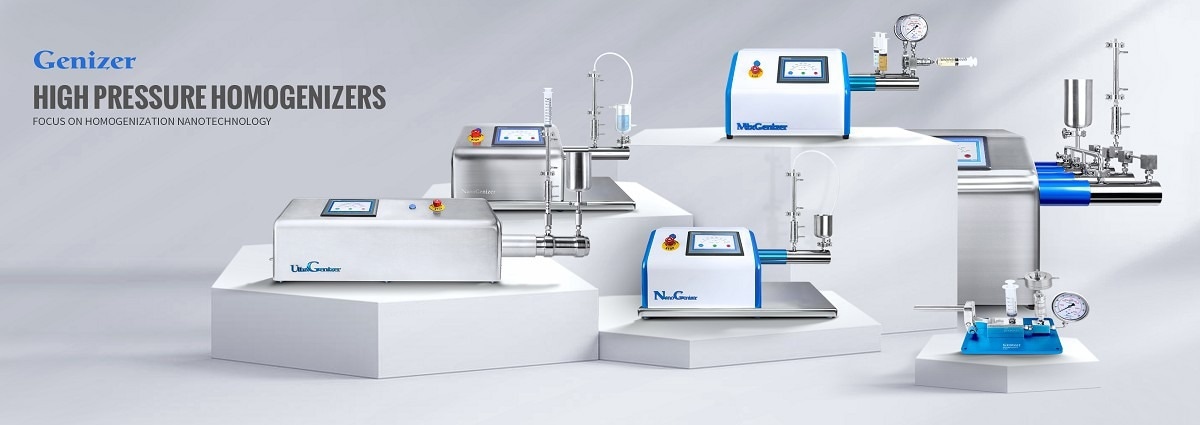Sponsored by Genizer LLCReviewed by Aimee MolineuxJan 9 2024
When it comes to creating liquid formulations, ensuring a consistent dispersion of active ingredients is necessary for the efficacy and stability of the product.
Homogenization is a commonly employed technique to achieve this goal, and selecting the right homogenizer plays an essential role in attaining the desired results. This article explains the factors to consider when choosing the right homogenizer for liquid formulations.

Image Credit: Genizer LLC
Product Characteristics
The first step is to consider the product's properties, such as its viscosity, particle size, and required pressure. The product's viscosity is essential in determining the force required for homogenization. If the viscosity is higher, more pressure is needed to break down the particles.
Particle size is also important since smaller particles demand higher pressure for their breakdown. Finally, the required pressure relies on the product's properties under consideration. Certain products may require higher pressures to ensure uniformity, while others can be suitably processed at lower pressures.
Types of Homogenizers
Various types of homogenizers are available in the market, including rotor-stator, ultrasonic, and high-pressure homogenizers. Rotor-stator homogenizers, the most frequently employed type, are ideal for low- to medium-viscosity products.
Ultrasonic homogenizers utilize sound waves to break down particles and are especially effective for heat-sensitive samples. High-pressure homogenizers are appropriate for high-viscosity products, producing more consistent results.
Advantages and Disadvantages
Every homogenizer type has its advantages and disadvantages. Rotor-stator homogenizers are cost-effective and user-friendly but not appropriate for high-viscosity samples.
Ultrasonic homogenizers can efficiently handle small samples but these are unsuitable for large volumes. High-pressure homogenizers can produce consistent results while processing high-viscosity samples, but they are expensive and demand more maintenance.
Choosing the Right Homogenizer
When selecting the right homogenizer for a liquid formulation, evaluate the product's characteristics and choose the homogenizer that best suits those properties. Take into account the sample volume and the lab's capacity for handling the equipment.
The budget for the equipment and any additional maintenance needs must also be considered. One high-pressure homogenizer that merits consideration is the NanoGenizer. It employs a distinctive design and technology to achieve exceptional particle size reduction and dispersion.
The NanoGenizer can process a broad array of sample volumes, rendering it an excellent choice for many liquid formulation applications. Its compact size and user-friendly interface make it well-suited for laboratory usage.
In conclusion, selecting the right homogenizer for any liquid formulation depends on various factors, such as product characteristics, type of homogenizer, advantages and disadvantages, and budget considerations.
Carefully considering these factors can aid in selecting a homogenizer capable of meeting specific requirements and producing uniform and reliable results.

This information has been sourced, reviewed and adapted from materials provided by Genizer LLC.
For more information on this source, please visit Genizer LLC.